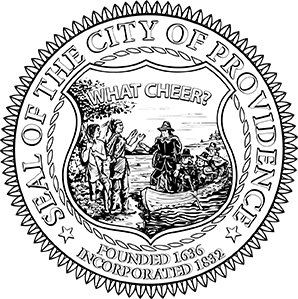You’ve considered the negative impacts of pesticides and chemical fertilizers and have decided to go pesticide-free [Take the Pledge]. Thank you for placing the health of our community, ecosystem and waterways first!
First things first — get comfortable with imperfection! Mother Nature isn’t perfect. If you’re trying to capture a bit of nature in your yard, be ready to embrace all aspects of a healthy ecosystem. Insects and microorganisms create nutrient cycling and healthy soils without harmful fertilizers and pesticides. If you want an organic lawn, you’re going to have some weeds. You may need to put in some manual labor! Often, tackling a section of your lawn at a time can help. Can success for this year mean spreading compost and reseeding a quarter section of your yard?
Focusing on soil health can help facilitate healthy lawns and reduce weed growth. Healthy soils also more readily sequester carbon as a food source, and slow global climate change. If your soil is too compacted, loosen or aerate it before planting. All plants need plenty of oxygen for their roots. A barrier at the soil can also restrict the downward movement of nutrients and moisture. Aerating improves air circulation and water absorption. Covering the earth with compost can also provide a source of organic matter and beneficial microorganisms. Lay compost down then seed it, and be diligent about watering new seeds in the spring or fall (when temperatures are cooler).
Incorporate native plants into your landscape. Native plants are adapted to local conditions and aren’t easily out-competed by unwanted plants. Visit the Rhode Island Native Plant Guide to search for species indigenous to the state and where to purchase them. Buy a high-quality grass seed which is native to our area, such as a URI’s #1 and #2 grass seed mixes.
Be patient, allow some weeds to grow.
Healthy soil systems improve water retention, reducing water consumption and making the system less vulnerable to periods of drought or low water. Water sparingly and use a ‘low flow and slow’ method. Low flow water pressure, for a longer, slower period of time. This allows soil to absorb water into the root zone. Avoid watering in the heat of the day — water in the early morning when transpiration is less. When checking for proper water, you should be able to feel moist soil with no excess water, up to one inch down.
Proper lawn care maintenance can naturally eliminate most weeds, such as allowing grass to grow 4 inches or higher. By mowing less, longer grass blades can naturally shade out weeds and support stronger roots. Taller grass supports greater photosynthesis, and supports native pollinators and increases beneficial insects. After you mow, fertilize naturally by leaving grass clippings on the lawn. Fine grass pieces are easily digested by soil microorganisms, creating nitrogen rich fertilizer. Similarly, fallen leaves may also be left on your lawn year-round as a natural fertilizer. Mow over the leaves to add nutrients to the grass or leave them in your gardens and remove the leaves in late Spring. Say no to leaf blowers! Leaf blowers remove the organic layer of your soil, an important over-wintering habitat for our native pollinators and important insects like fireflies.
In addition to grass clippings and leaves, other natural fertilizers include compost, a compost ‘tea’, seaweed, and bone, blood, or feather meal. Organic fertilizers release nutrients slowly while promoting soil health. A soil test can help determine which nutrients your soil is lacking. URI Master Gardener volunteers offer a free soil testing service at the Roger Williams Park Botanical Center the first Saturday of every month.
If and when weeds do arise, get ready to do a little manual labor. (Or decide to let them be — dandelions are awesome for bees!) Often the right tool can make quick work of manual weeding. After manually removing weeds, use grass seed and compost to fill the hole. Boiling water and vinegar can also effectively kill weeds, but may indiscriminately kill the surrounding plants as well.
What about pests? Start by implementing proper cultural practices, like decluttering your yard and removing standing water and open food sources, to discourage pests. Natural pesticides like neem oil, peppermint oil or diatomaceous earth are great alternatives to chemical pesticides. If insects such as Japanese beetle grubs become a pest in your lawn, try applying an organic method of control like milky spore. For garden insect pests such as slugs, try neem oil or diatomaceous earth. Remember, insects are generally a sign of a healthy ecosystem! In order to have an appropriate ecosystem in your soil, you need to have microorganisms and insects to create a nutrient cycle.

